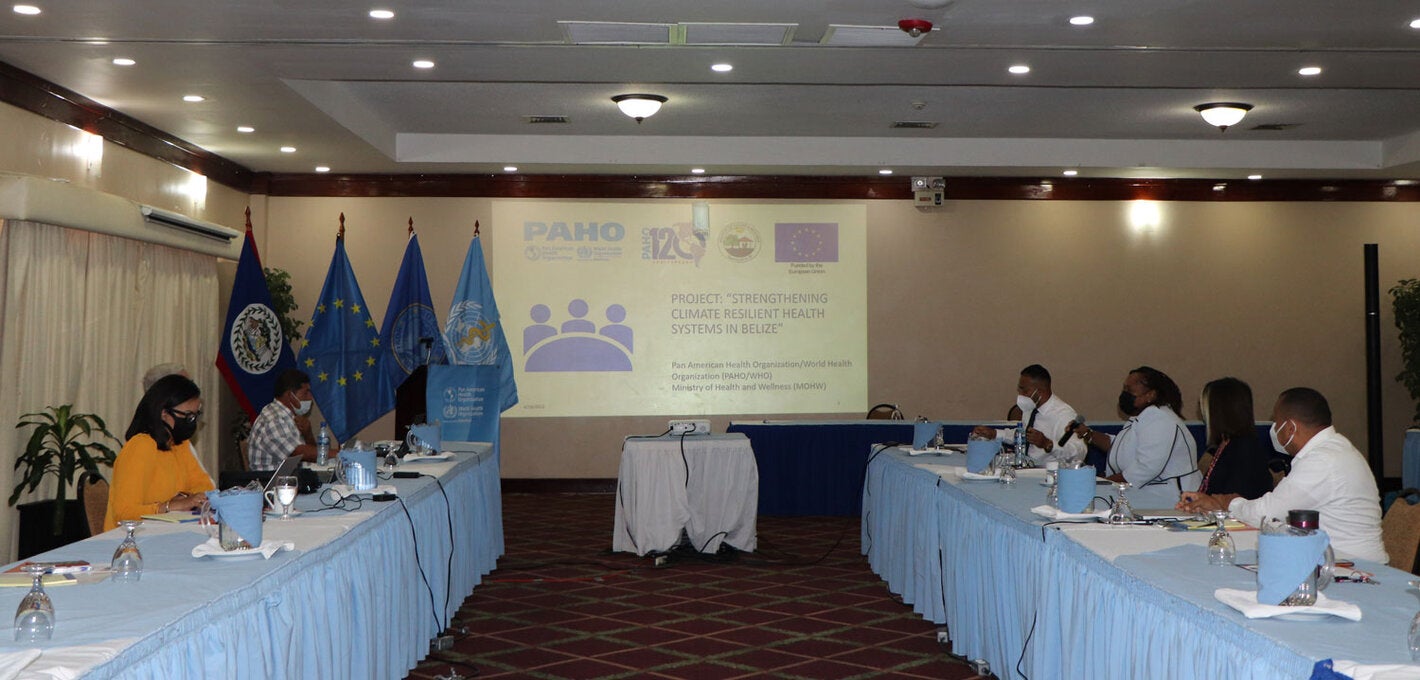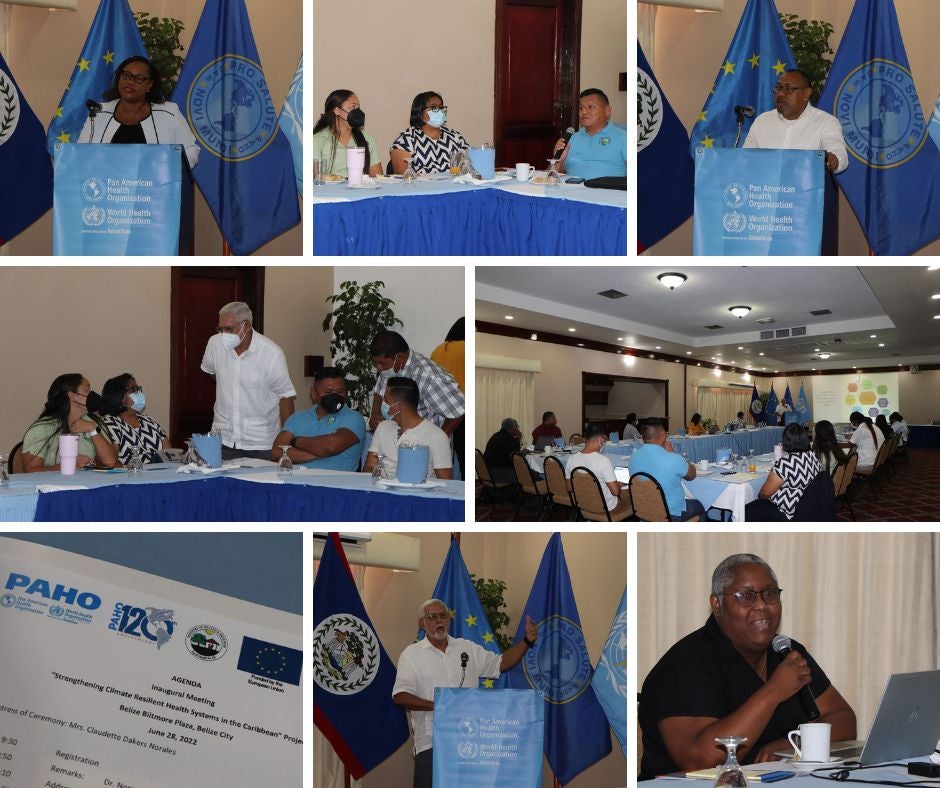
Belize City, Belize, June 28, 2022 (PAHO) – On Tuesday, June 28, the Pan American Health Organization/World Health Organization (PAHO/WHO), with funding support from the European Union (EU), hosted an inaugural meeting with key stakeholders to strengthen Climate Resilient Health Systems in Belize. In collaboration with the Ministry of Health and Wellness (MoHW), the goal is to develop a comprehensive health chapter in the National Adaptation Plan (H-NAP).
Through a Grant Contract for External Actions of the EU, signed in July 2020 between the subregion of the Caribbean (CARIFORUM) and PAHO/WHO, Belize is one of 16 Caribbean countries participating in a five-year project aimed at “Strengthening Climate Resilient Health Systems in the Caribbean” to build climate resilience of health services and delivery systems to better prepare and respond to climate threats.
Climate change has had a significant impact on people’s health and well-being in the Caribbean region disrupting physical, biological, economic, and ecological systems, particularly in the health-related aspects such as vector and water-borne diseases, respiratory illnesses, heat strokes, and mental health disorders. The Caribbean, including Belize, has been severely impacted by the increased number of intense hurricanes, abnormally hot days, floods, and other climate-related threats.
“This is an opportunity to highlight the critical link between health and climate change,” said Dr. Noreen Jack, PAHO/WHO Representative in Belize. “Climate change threatens the achievement of universal health coverage and sustainable development goals by compounding the burden of diseases and exacerbating existing barriers to accessing health services and driving additional persons into poverty. PAHO/WHO will continue to work with the MoHW and the other partners and sectors to support the implementation of the plan.”
Key stakeholders in attendance included the Ministry of Sustainable Development, Climate Change and Disaster Risk Management, The National Climate Change Office, The Department of the Environment (DOE), Caribbean Community Climate Change Centre (CCCCC), Ministry of Agriculture, Food Security and Enterprises, Belize Agricultural Health Authority (BAHA) and National Meteorological Service came together to better understand all health-related vulnerabilities to climate change in the country.
On behalf of the MoHW Mr. John Bodden, Principal Public Health Inspector, Environmental and Public Health, also provided remarks, “In a time of limited finances, preparedness will reduce challenges, fear, anxiety and losses that accompany disasters. The minister wants to publicly commit his support to the advancement of the agenda to build our resilience to climate change impacts. There is absolutely no doubt that it will require wider engagement of the government, public sector, and other key partners who have shared interests to improve the health outcomes for our population.”
The overall objective of the project is to identify existing policies and programs to control and address the health burdens associated with climate change and to identify current and planned targeted interventions.
Through this project, Belize will be able to work collaboratively with stakeholders and organizations to strengthen its health sector’s capacity to better adapt to climate change including its prevention and preparedness efforts and the country will be able to prioritize key actions targeting the vulnerable populations.




